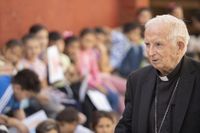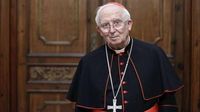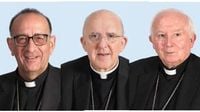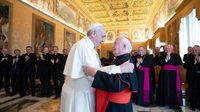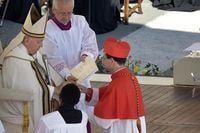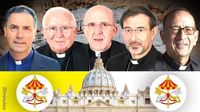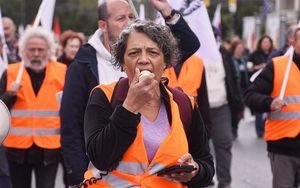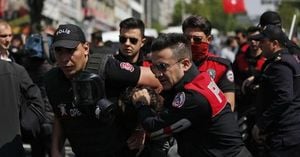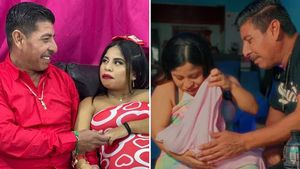Following the death of Pope Francis on April 21, 2025, the College of Cardinals, consisting of 252 cardinals from 94 countries, is set to convene for a papal conclave to elect the next pontiff. Out of these, 135 cardinals are eligible to vote, and among them are five Spanish cardinals who will play a pivotal role in this historic decision.
Spain holds a significant position in the conclave with five electors, making it the third most represented country after Italy and the United States. The Spanish cardinals eligible to vote include Antonio Cañizares Llovera, Ángel Fernández Artime, Carlos Osoro Sierra, José Cobo Cano, and Juan José Omella. Each of these figures brings a wealth of experience and influence within the Church.
Antonio Cañizares Llovera, 79, is the archbishop emeritus of Valencia, having held the position since October 2022 after his resignation was accepted by Pope Francis. Cañizares, who was appointed cardinal in 2006 by Pope Benedict XVI, has served as vice president of the Spanish Episcopal Conference (CEE) during two separate terms, from 2005 to 2008 and again from 2017 to 2020. Despite not being among the frontrunners for the papacy, he remains a papable candidate due to his age, as he will turn 80 only six weeks after the conclave begins.
Ángel Fernández Artime, aged 64, is the proprefect of the Dicastery for the Institutes of Consecrated Life and Societies of Apostolic Life, a position he has held since 2023. Having lived in Buenos Aires for many years, he developed a close relationship with the late Pope Francis, who appointed him cardinal in 2023. Fernández Artime is noted for his dedication to education and youth service but does not align strictly with either conservative or progressive factions within the Church.
Carlos Osoro Sierra, another prominent figure, served as the archbishop of Madrid until June 2023 and was made cardinal in November 2016. At 79, he shares a similar vision for the Church with Pope Francis. However, he faces the possibility of being excluded from the conclave as he will turn 80 on May 16, 2025, just before the conclave is expected to start.
José Cobo Cano, 59, is the youngest of the Spanish cardinals and has been the archbishop of Madrid since July 2023. He was appointed cardinal in September of the same year and serves as vice president of the CEE since March 2024. His recent elevation to cardinal and leadership role within the Church makes him a significant player in the upcoming election.
Juan José Omella, also 79, is the archbishop of Barcelona and has been a cardinal since 2017. He previously served as president of the CEE and is a member of the C-9, the advisory council for the Pope. Omella's reformist views align closely with those of Pope Francis, and he has played a mediating role in political discussions in Catalonia, showcasing his influence beyond ecclesiastical matters.
While these five cardinals represent Spain in the conclave, it is noteworthy that there are two additional cardinals born in Spain—Cristóbal López Romero and François-Xavier Bustillo—who are not considered official representatives of the country due to their current roles in other nations.
The conclave is expected to commence in approximately 15 to 20 days following the vacancy of the papal seat, likely in the first week of May 2025. According to the Constitution Apostolica 'Universi Dominici Gregis', the proceedings will take place in the Sistine Chapel, where the cardinals will gather in secrecy to elect the next pope. The process involves multiple rounds of voting, requiring a two-thirds majority to elect the new pontiff.
During the conclave, cardinals will be isolated from the outside world to ensure that their decision is made free from external influences. They will participate in up to four votes daily, with ballots being burned after each round. If no candidate receives the required majority, black smoke will signal to the public that a decision has not yet been reached. Conversely, if a new pope is elected, white smoke will emerge, announcing the successful election.
As the cardinals prepare for this significant moment in the Catholic Church, their decisions will not only shape the future of the Church but also reflect the evolving dynamics of global Catholicism. The upcoming conclave presents an opportunity for a new leader to emerge, potentially continuing or altering the legacy of Pope Francis, who emphasized a more universal approach to the papacy by appointing cardinals from diverse backgrounds.
In light of these developments, the world watches closely as the College of Cardinals prepares to embark on this sacred journey of selecting the next spiritual leader of over a billion Catholics worldwide. The choices made in the conclave will resonate far beyond the walls of the Vatican, influencing the Church's direction in a rapidly changing world.
